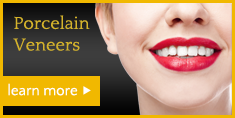 What Causes “Baby Bottle Tooth Decay?”
What Causes “Baby Bottle Tooth Decay?”
Being mammals, human babies drink milk. It provides all the nutrients they need to grow and thrive. However, as children get older and their primary baby teeth begin to emerge, drinking milk can pose the risk of cavities and “baby bottle tooth decay.”
In general, milk is very healthy for teeth. It provides the body with calcium, a nutrient essential for the proper development of teeth and bones. And, while not naturally occurring in milk, Vitamin D is added to cow’s milk and baby formula. This vitamin works in combination with calcium, helping the absorption into the body.
But for all its benefits, milk that remains pooled on teeth and gums is fuel for harmful bacteria that cause cavities and tooth decay.
In addition to milk, baby bottle tooth decay can be caused by other liquids you might give your baby. These include baby formula, juice, soda, or other sugary beverages. (Juice and soda, in particular, have very high sugar contents. So it’s best to stick to the milk or formula designed for your baby!)
How To Prevent It
So how can you prevent even these healthy liquids from causing dental problems in babies and toddlers? It’s crucial to keep their new teeth clean and healthy. Begin the process early, before the new teeth even emerge. After feedings, use a damp washcloth or piece of gauze to wipe milk residue from your baby’s gums. Establishing this habit will help your baby become more receptive to brushing once teeth are present. They even make a soft silicone finger brush that’s designed specifically for this purpose.
Once your baby has their first tooth, it’s time to start brushing it! Use only a small amount of toothpaste (about the size of a grain of rice). Additionally, the American Academy of Pediatric Dentistry recommended that children have their first trip to the dentist within six months of getting their first tooth. This appointment allows us to check on their progress and ensure these vital baby teeth are getting off to the right start!




Comments are closed.